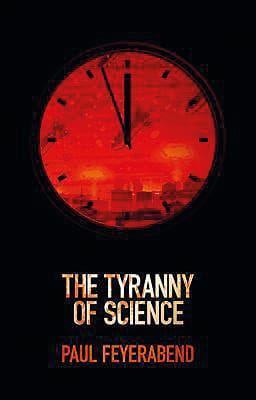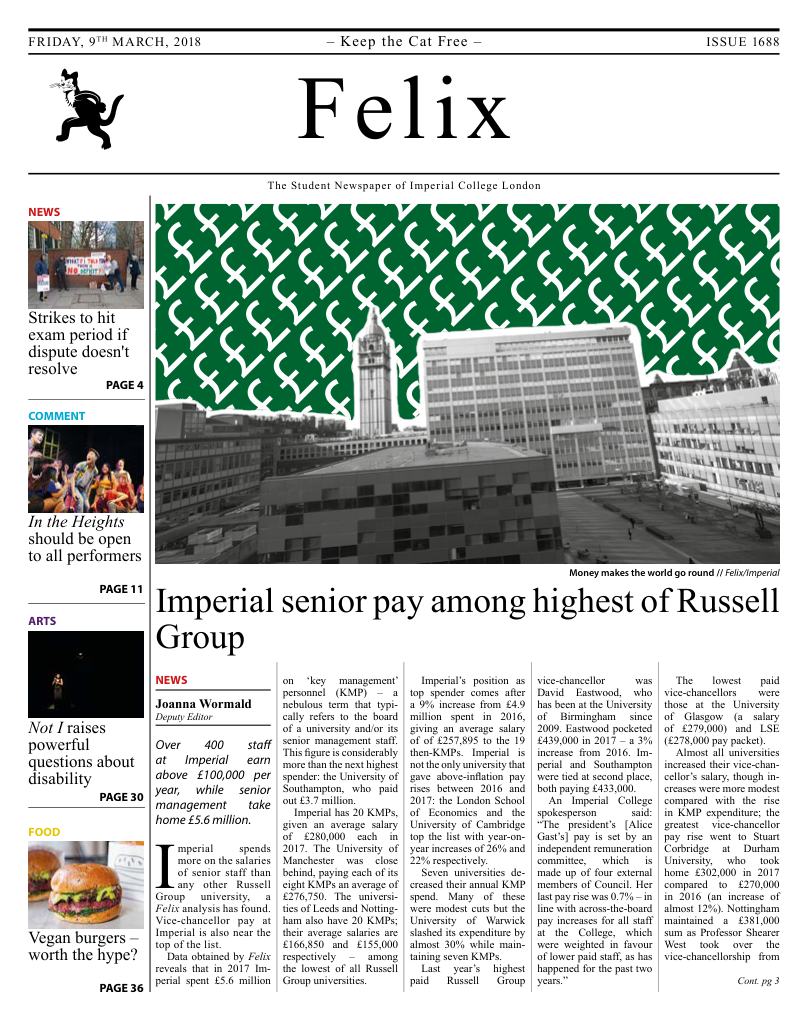Are we living under the tyranny of science?
Maybe we all need to take some time to re-evaluate our basic relationship with science.

I’ve noticed posters around college, and have been leafleted with a manifesto. At first, I was a little taken aback by their stance: ‘We believe the scientific method is dogmatic and prescriptive, and it restricts creativity of thought in science.’ The group, calling themselves the ‘Against Method Collective’, seems to have based their campaign (or so-called revolution) on the writings of the rather maverick philosopher of science Paul Feyerabend. Interested, I thought I’d take a look.
In their materials they mention a text called Against Method from 1975 which I picked up from the library but, honestly, found a little too dense for someone not versed in reading philosophy. However, I did find another book by Feyerabend, based on a series of public lectures he gave in 1992 at the end of his life, called The Tyranny of Science: it’s transformed the way I think about science. Feyerabend is more than just a dry critical thinker, he is a masterful storyteller. His voice is strong and often makes the reader (or this reader, at least) gasp, laugh, and screw up their face in displeasure. His provocative thoughts are most challenging to those of us who have been fully indoctrinated with the ‘scientific’ view of the world — many of us at Imperial for sure!
But this is exactly what he is trying to do: enrage us and wake us up from our complacency.
Feyerabend wants us to realise the fallacy in our own scientific thinking. He wants us scientists to remember that we are humans and cannot remove ourselves (and all other influences) from science. He wants us to realise that by ignoring this we are fooling ourselves, but, more importantly, he argues that our blinkered way of thinking would limit what we could learn.
He starts, like most philosophers, with the Ancient Greeks and then charts the rise of rationalism through to our modern world, in which the mystical ‘scientific’ world view rules supreme. He argues that some of the very basic assumptions we all make about science are false and that sustainable parts of scientific ideology were created on the basis of superficial generalisations. He argues that this has led us all to absurd misconceptions about the nature of human life.
He pleads for us to understand that knowledge is obtainable by any method, and by understanding this we could relinquish science’s hold over all truth, thus coming out from under its tyranny and solve the real problems people face: hunger, poverty, and war.
To Feyerabend, the sciences themselves are not the enemy. They play their part in the real solutions. Feyerabend thought the problem lies in the scientific method: scientists are taught to be ‘objective’, approaching the world as an abstraction instead of experiencing the world by other methods. Science encourages us to theorise and dehumanise people, turning us into data or objects to model. This, for Feyerabend, is the true tyranny of science.
But why should we read Feyerabend now?
Science, now more than ever, seems to be under threat and has started to fight back. We have seen presidents dismissing climate change, politicians saying that we ‘have had enough of experts’, and schools teaching creationism.
People have had enough of science and its absoluteness, its hard inhumanness, and its ‘objectivity’. In response, science has entrenched itself. Instead of opening itself up to examination and accepting its flawed nature, the scientific establishment poo-pooed non-believers as stupid and ignorant.
This sentiment was most evident in April 2017, when those devoted to science attended the worldwide political march for science with placards that read slogans such as ‘Science reveals reality’, ‘Science has no agenda’ , and ‘Without science it’s just fiction’. Here, scientists were saying that the only way to knowledge is through science: science is the only truth. Thanks to Feyerabend, I can see that not only are these statements too naive about the nature of science, but also that they are dogmatic and oppressive. No wonder we haven’t convinced anyone to come join our evidence-based, peer-reviewed, rational cult.
Maybe scientists should all read Feyerabend, learn to be a little less self-righteous, and open their minds to new ways of thinking. Instead of oppressing ourselves and others with science, we should maybe take note of what Feyerabend said all those years ago and replace the scientific method with the principle that ‘anything goes’.











